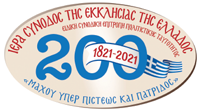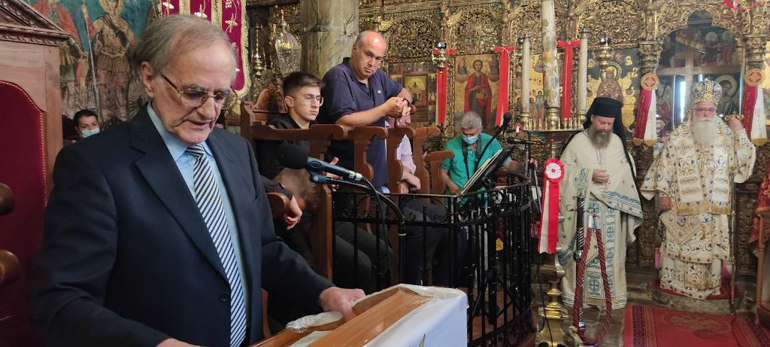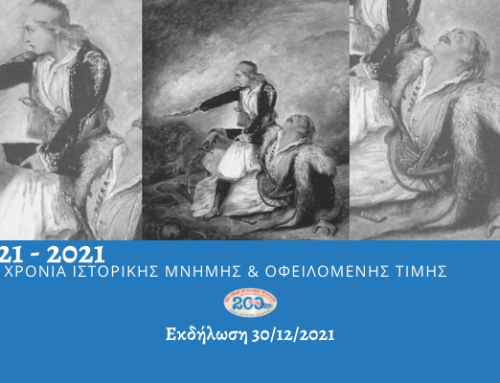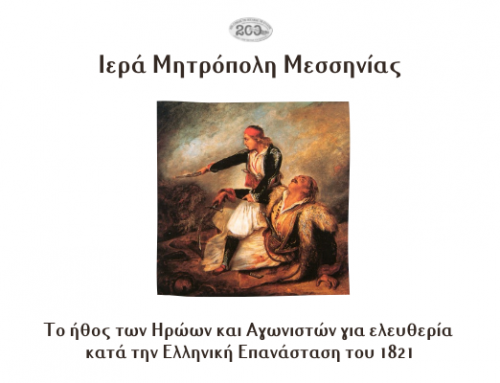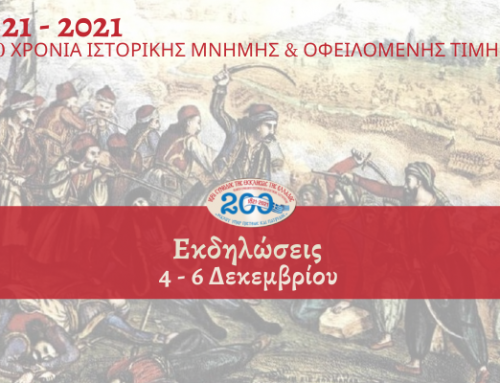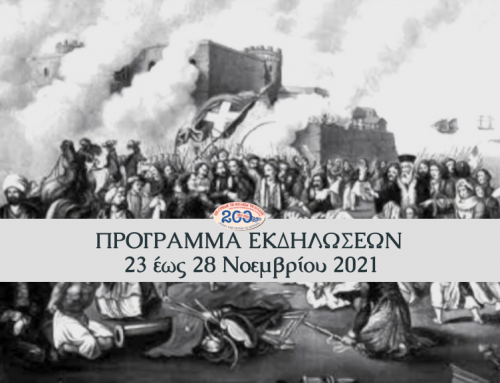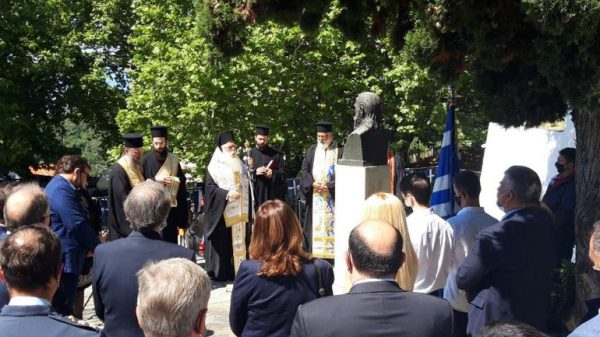
It was the 7th of May 1821, when the Great Master of the Nation Anthimos Gazis raised the standard of the Revolution in Milies of Pelion Mt., thus declaring the commencement of the Liberation Struggle in Thessalia – Magnesia.
This anniversary was duly honoured in the holy Church of the All-Greatest Taxiarches, where a solemn Divine Liturgy was performed, with Most Rev. Metropolitan Ignatios of Demetrias officiating, and several state dignitaries as well as a limited number of pilgrims attending, within the framework of the measures for the protection of public health.
The Most Rev. Metropolitan focuses his sermon on the historical significance of the church of the Taxiarches in Milies. At another point he pointed out that “we Orthodox Greeks, when we celebrate the 200 years of the Revolution, we do not only commemorate the conquest of freedom and the creation of a free state but also the miracle which preceded, namely the fact that for over 400 years our ancestors remained Greek thanks to their Orthodox faith and the Greek learning, preserved by the Church at that time. Many learned persons and teachers, such as Anthimos Gazis, Gregorios Constandas, and Daniel Philippides, educated in the West, were clergymen, prepared the freedom of this land by cultivating the souls they prepared for the Revolution, through learning”. Subsequently, the Most Rev. Metropolitan referred to the contribution of the Neomartyrs to the Struggle for Freedom, on the occasion of the topical commemoration of Neomartyrs Demetrios and Pavlos of Tripolis : “they are those who did not renounce their faith in Christ and paid with their lives as a price. The Neomartyrs kept alive the hope and the belief that the time of the resurrection of the fatherland would soon arrive. May we prove ourselves worthy of them, so that we may hope for a better future for our country and nation”.
At the end of the Divine Liturgy an austere ceremony of commemoration took place, closing which the Most Rev. Metropolitan made reference to the personality of Anthimos Gazis, pointing out that “whereas he had all the qualifications to excel in the Diaspora as a great intellectual, learned man and eminent clergyman, nonetheless he returned to his fatherland, a genuine continuator of Regas Pheraios, whom he loved and studied and whose Constitution he wished to apply. He returned to his land to offer learning to children, because he knew that without true learning there is no freedom. This is why to those who return to the fatherland, to those who keep the tradition of Pelion Mt. alive. Our local Church is also engaged in a similar struggle, taking care of the operation of all the churches of Pelion Mt., thanks to the priests who offer themselves disinterestedly”.
